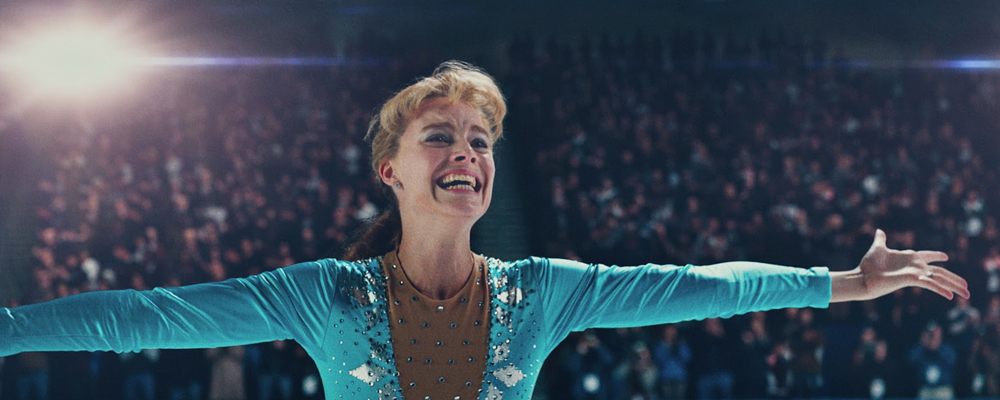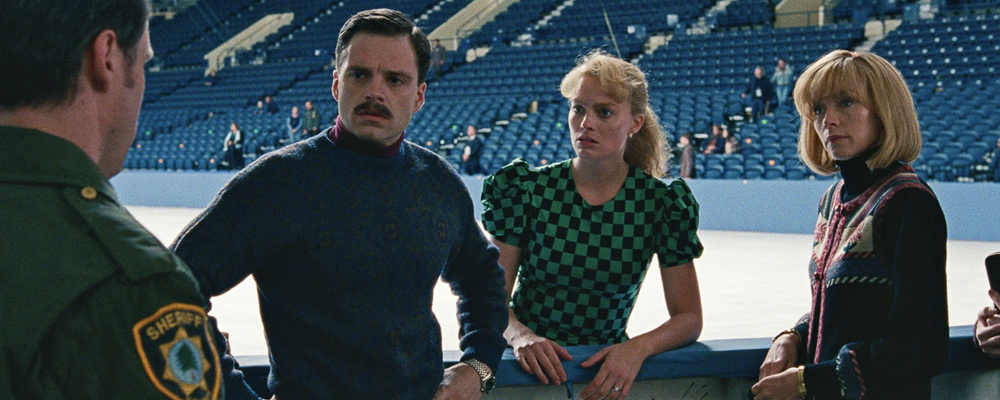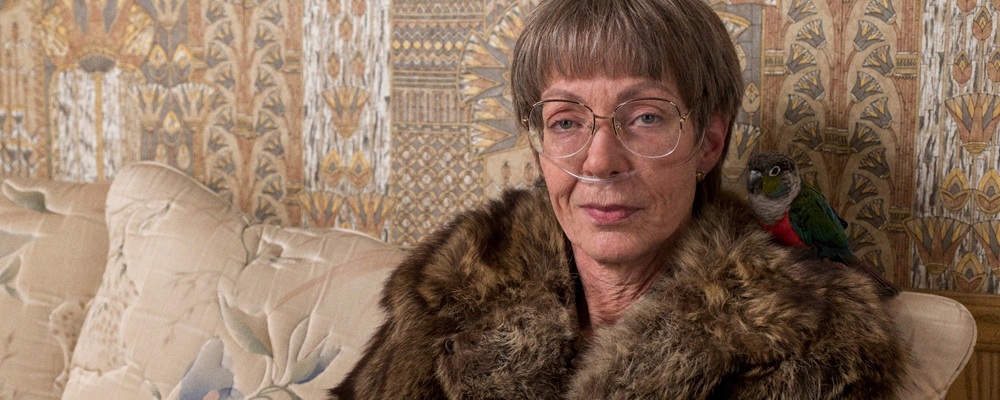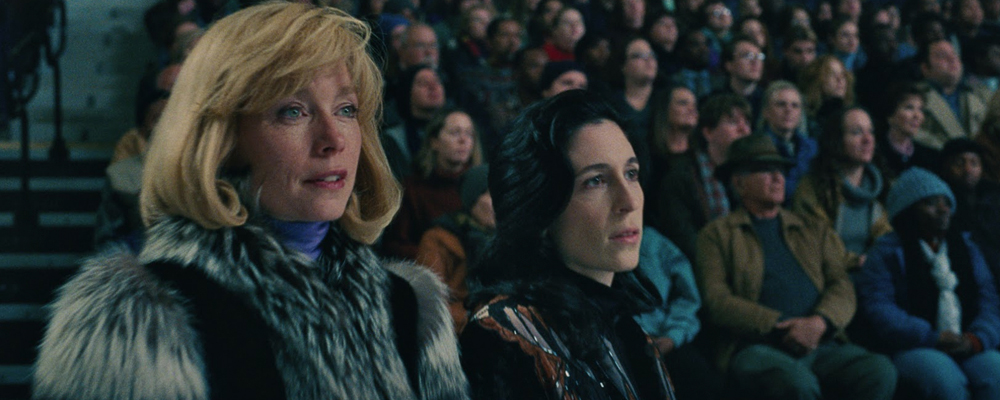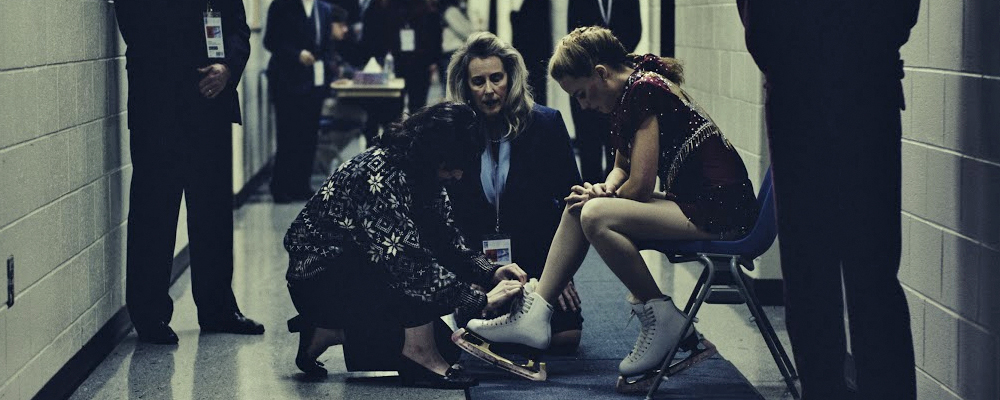‘I, Tonya’ Is a Cinematic Blast of Scandal and Tragedy
Alci Rengifo
Oh how the mighty fall. Tonya Harding had pulled herself up to grip the world as one of its great figure skaters before coming back down under a cloud of farcical, violent scandal. “I, Tonya“ is a visually exhilarating, satirical take on the Harding story and the media culture that turned it into a phenomenon. Margot Robbie delivers a breakthrough performance as Harding, encompassing all of the drive, talent and eventual tragedy of the character. She makes us laugh and cry. Director Craig Gillespie gives us here his lurid magnum opus, crafted with a love for visual images and unforgettable characters.
Structured as a series of testimonials intercut with the drama, the movie tells the tale of Tonya Harding, who hails from the humblest corners of working class America. From a young age she is hovered over by a ferociously mean, demanding mother named LaVona (Allison Janney), who basically imposes figure skating on her life (“Don’t talk to that other girl, she is your enemy”). But the effort pays off and by the time she’s a teen Tonya is ready for serious competition. But as she continues developing her skill she falls in love with Jeff Gillooly (Sebastian Stan) , who seems like a regular guy until the beatings start. He and Tonya develop a toxic relationship based on constant fighting. Tonya soon astounds the world by becoming the first American to complete a triple axel jump in figure skating competition. Yet she suspects she is still somewhat slighted for being white trash and feels the pressure when Nancy Kerrigan ( Caitlin Carver) becomes a real threat on the skating ring. Jeff and bodyguard/dreamer Shawn Eckhart (Paul Walter Hauser) start devising a plot to rig an upcoming competition by incapacitating Kerrigan and help Tonya win. The rest, as they say, is history.
“I, Tonya” is one of those great biopics that takes a controversial figure and manages to generate a sense of empathy. Here Tonya Harding changes from notorious tabloid villainess to a pop culture figure worthy of Greek tragedy. Margot Robbie’s performance is full of great energy and deep, inner scars. She’s an underdog who feels the judges scoffing at her cheap costumes, one even tells her with a snide, “we also judge on presentation,” even after she’s delivered a strong performance on the ice. She’s an example of talent hampered by social placement. Harding also becomes a victim of her own faults as she can’t seem to shake away Jeff. He in turn transforms his attachment to her into such a bad habit that he’ll do anything to stay. The scenes between the two are arias of dark humor as they argue, make love, then deliver crushing punches to each other, creating a death wheel routine in their house. Sebastian Stan creates a whole character in his interpretation of the simple, violent Jeff. We absolutely believe him as a little man married to a talented woman he can only express himself to with toxic fits.
Visually this is a wild gesture by Gillespie, who with cinematographer Nicolas Karakatsanis films this story with the breakneck tone of early Martin Scorsese. The world of Harding is shot in cold, grey colors evoking the abandonment of Middle America. The moments where Tonya shines on the ring burst with color and hypnotic, montage editing. The scene where Harding performs her historic triple axel is beautifully grandiose. The camera evokes the stress and scope of Tonya’s performances, and later the sense of the claustrophobia of becoming a sudden media sensation (for the wrong reasons). All of it is framed by a killer soundtrack featuring songs like “Barracuda” by Heart and “The Chain” by Fleetwood Mac, which are incorporated in a way so flawless you’ll be associating them with the images of this film for a long time to come.
This film feels alive because Gillespie combines his visual flare with vicious humor and a sharp understanding these characters. There is a sense that Harding might have gone on further in her career if it wasn’t for the bad habit of surrounding herself with farcical losers. If we are to go by the film, Harding truly was unaware of the plan to attack Kerrigan, but she was clueless or distracted to see what was coming. The greatest of these losers is Paul Walter Hauser as Shawn Eckhart, a rotund, delusional ego who claims he has training in counter terrorism when it is obvious he’s a complete charlatan. When his and Jeff’s plot results in one of his “agents” attacking Kerrigan with a police baton by hitting her leg (one of the enduring images of 1990s sports scandal), a police manhunt ensues and it is pure, dark hilarity to see Eckhart become a bumbling snitch. He speaks with the lazy, self-assured tone of those who are legends only to themselves. Allison Janney is terrifying as Tonya’s mother, evoking a personality so hardened and mean the lens nearly cracks. All the performances are so good it was a stroke of genius for Gillespie to include real news and interview footage during the end credits, because we can see just how well these actors absorbed these personas.
“I, Tonya” is real life as satire, and so strange it simply cannot be made up. It finds the grand scope and dark side of what merely seems like another tabloid event from the 1990s, yet like all human stories, it’s a little more complicated. Don’t miss this one.
“I, Tonya” opens Dec. 8 in select theaters.

